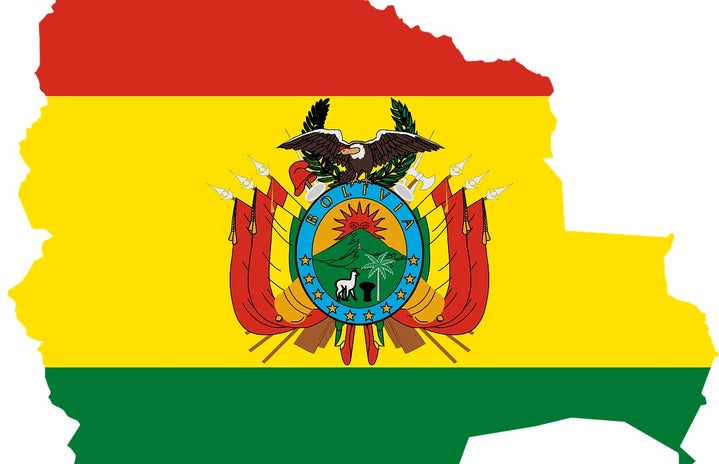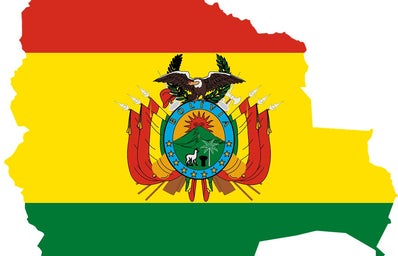As I told you in one of my last articles about the situation in Chile, Latin America is right now in a very volatile status with a lot of issues gaining attention and protest going afloat. One of the latest countries that brought up attention was Bolivia and hence you might have seen it lately in the tabloids and social media, but if you haven’t or you have no idea on why are people posting about it, just keep reading!
Picture this: you are watching how the votes are turning out in each state in the next presidential elections and just as the votes are two thirds through, it is going really tight between the two main candidates that they are about to say that it is necessary to do a second round of elections because it is impossible to decide a winner, and all the sudden all, the media channels where you can find out about the elections shut down. And then, for the next 24 hours, you cannot possibly find out anything about the elections in any media; until, out of the nothing, they announce a winner and they don’t need a second round. Wouldn’t you be super suspicious about it?
Well, that is exactly what happened in Bolivia in their October 20 Presidential elections in which Evo Morales —Bolivia’s president for the last 14 years and their first indigenous president— turned out to be the “winner” despite this abnormal election process while he was also seeking a fourth term after a controversial move by the constitutional court to scrap presidential term limits.
Under Bolivian election laws, a presidential candidate needs to win 50 percent of the vote — or 40 percent with a 10-point lead over the runner-up — to prevent the race going to a second-round runoff. But logically, there was a big debate over whether Morales ever reached that threshold.
Bolivians and international observers became suspicious when election officials suddenly stopped announcing results for about 24 hours without an explanation. When final results were announced, Morales — who was leading by less than 10 points in early returns — had won with just over the 10-point margin needed to avoid a runoff against his closest rival, former President Carlos Mesa.
Mesa and other opposition politicians quickly accused the government of fraud, and thousands of Bolivians went to the streets for weeks to protests against him tampering their democracy. Meanwhile, Morales denied all the allegations and declared himself the president.
Protests kept going for weeks with repression from the military until Sunday, November 10, when monitors from the Organization of American States published their report into the election. It was that found there had been “clear manipulation,” and called for the results to be annulled, and the vote held over again under the watch of a new electoral commission. Morales accepted the findings saying new elections would be held; but the damage was already done and the fact that it was proven that democracy was violated so he could be another term in the presidency by tampering Bolivians’ democracy could not be ignored. Later that day, Gen. Williams Kaliman, commander of Bolivia’s armed forces, and national police chief Vladimir Calderón both called for his resignation in the name of restoring order, and urged protesters to call off their uprising.

As a result of all of this, Morales resigned in a televised address and sought asylum in Mexico. This sparked a lot of joy in a lot of Bolivians who came out to the streets to celebrate. However, just as the initial elections were very divided, a little over half of the population wanted Morales out of power, whereas the other significant almost-half of the population wanted him to stay in the presidency. Therefore, just after the joy of one group was starting to ignite, the other group started to protest the resignation of Morales and called it a “coup d’état.” Summing up the against-Morales and the pro-Morales protests, 23 people have been killed during the political unrest, according to the Inter-American Commission on Human Rights.
After Morales’ resignation, the leadership gap in Bolivia needed to be filled, especially in such tense times. Therefore, as the deputy Senate leader, Jeanine Áñez took temporary control of the body last Tuesday after Bolivia’s vice-president and the leaders of the senate and lower house resigned, which put her next in line for the presidency under the constitution. The appointment of Áñez, an opposition senator, as the interim leader has been endorsed by Bolivia’s Constitutional Court and recognized by the US and the European Union. In addition, she has said she wants to hold elections as soon as possible, denying that took place against Morales.
Overall, Morales was a really transcendent politician in Latin America. He passed from being a coca farmer to being the president (yes, coca — it’s the plant they use to make both Coca-Cola and cocaine, and Bolivia plants a lot of it). He was the first indigenous president in Bolivia and the second in the region. Sadly, this fact and his equality efforts have disguised the corruption cases he has been part of like the Fondo Indígena, his really close ties with extreme-left governments like Cuba and Venezuela which have been internationally recognized for their human rights violations and corruption cases, or the fact that he wanted to change the constitution to have indeterminate re-election —a synonym of dictatorship and a huge red flag.
The fall of Morales brings a lot of hope to Latin America. It shows how in one of the countries of our region who have also been infected by violations to democracy by corrupted leaders, the voice of millions of repressed protesters can bring a change. I am hopeful.



